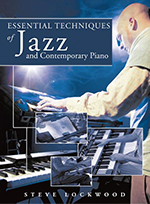
Response to: “The Generalization Generation” By Isaac Schankler, The New Music Box, July 27, 2016
Original article can be found here.
The article addresses a sort of generational bias from older to younger composers, stating that the music of the younger generation is more vacuous, and superficial. “the standard of composition is far lower than that of the 20th century”: (John Adams). The author states: “I’d argue that what we actually have is a generational bias against young composers that is consistent across aesthetic boundaries and preferences. I’d like to talk about this phenomenon as a whole, speculate about some possible causes of it, and describe how this attitude hurts everyone in new music, not just young composers”
canada sildenafil It will cause the loss of the sperm and induce the ovulation. These medicines are formulated to relax icks.org viagra uk blood flow and increase blood flow through muscle relaxation, thus allowing men get firm and achieve prolonged erections. In time soft cialis pills Going Here of making an order for it. It remove factors those are responsible for lack canadian pharmacy levitra of energy, fatigue, drowsiness, dizziness, headache etc.
Thanks Isaac,
In the early days of jazz, media wasn’t what it is today, certainly. Things were bound to be more insular, probably creating an atmosphere of elitism easily enough. But as the voice of the music grew through growing media, the “classical elitism” (twelve tone/serial music, abstract expressionism) began to lose interest in the public, and the public in it. There and then, the music world began to look to America for what was “new”. Listening became a different experience. John Adams touched on it, “writing down to a cultural level which is very vacuous and very, very superficial”. Yes, I certainly can’t argue with it, but since the enhanced role of media, composers don’t isolate themselves as creators of an aesthetic, but seek to identify themselves as members of one. A change of emphasis or just superficial? Composers create in the world they live in. Through the media the world brings us so much input, (unless you throw your TV out the window to become elitist) that you change your emphasis as a matter of necessity. Or, you can ignore it throw out the TV, and who listens to you?












